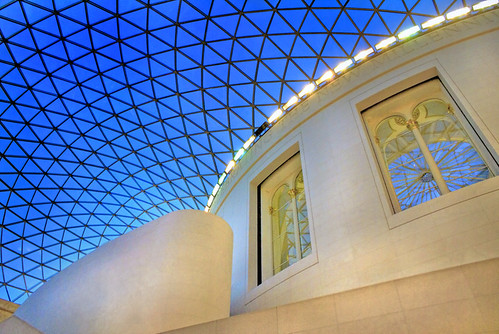
Tessellating, innit it? © J. Salmoral
In need of an art fix similar to the Metropolitan Museum of Art in NY while in London? Fortunately, the most expensive city in Europe (and the second most expensive city in the world next to Tokyo) features an array of free and top-notch museums.
The British Museum ”” with seven million-odd pieces ”” can take an entire day if you’re patient or willing. Fortunately, admission is free. Its Greek and Roman collections are quite stunning, as are the Asian and Egyptian rooms. The Great Court, however, is where the fun is really at. The tessellated glass ceiling covers the largest covered square in Europe and housed what was originally the museum’s reading room. Now it has several shops and cafes and is deliberately open later than the rest of the museum, creating a nice indoor piazza atmosphere. This is a great area for Bloomsbury enthusiasts in general; most houses/apartment buildings are from that era and are beautifully preserved.
The British Museum
Great Russell Street, WC1
Underground to Russell Sq/Tottenham Court Road
10:00 am to 5:30 pm Sat-Wed
10:00 am to 8:30 pm Thurs & Fri
www.thebritishmuseum.ac.uk
73.23.82.99

